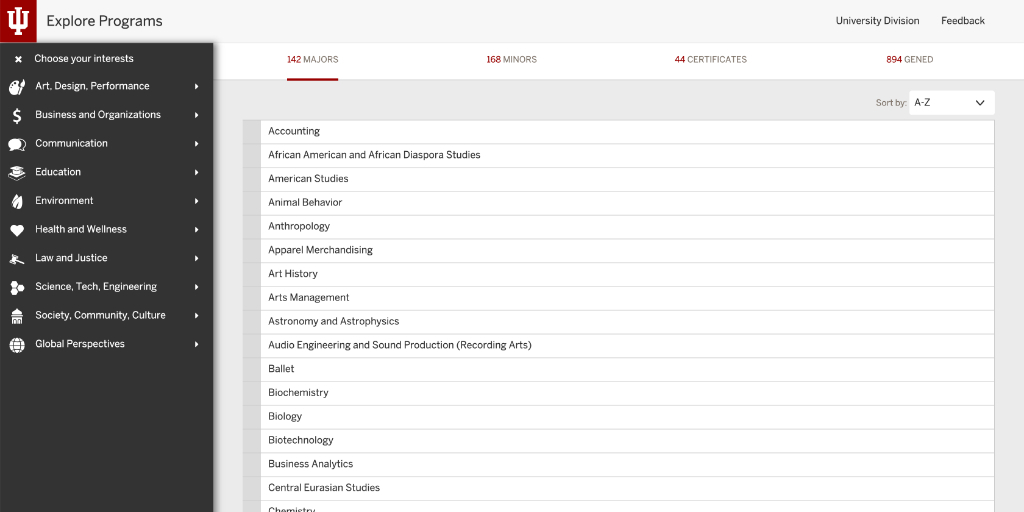Astronomy and Astrophysics Major Related Careers
The following careers are directly or indirectly related to the study of this major. Click the job title to learn more about it. To search for more career options, visit OnetOnline.org.
The Department of Astronomy is part of the College of Arts and Sciences. It offers both a Bachelor of Science (B.S.) and a Bachelor of Art (B.A.) degree.
When pursuing a B.S. degree in Astronomy and Astrophysics, students will study the entire universe—it's past, present, and future. You have the opportunity to confront fundamental questions about the nature of our universe and our place in it. The Astronomy and Astrophysics B.S. also requires advanced physics and mathematics coursework. It will not only prepare you for graduate programs in the field, but it also prepares you for a large variety of other possible career paths. Businesses, industries, and government agencies actively seek Astronomy majors for their strong analytical and quantitative reasoning skills. Students who wish to pursue graduate studies in astronomy in the future should pursue a B.S. major.
When pursuing a B.A. degree in Astronomy and Astrophysics, students are interested in astronomy as the subject of a liberal arts education, or as a background in the physical sciences for a wide range of career possibilities such as teaching, journalism, law or government or public policy, medicine, science writing and science in the media, visualization, and business. The focus is on a breadth of knowledge rather than on depth or specialization.
Students in the program would be able to use telescopes at campus observatories. Many also use and analyze data from the Wisconsin-Indiana-Yale-NOAO Observatories, other ground-based observatories, and space-borne observatories such as the Hubble Space Telescope in Swain Hall.
For detailed information about this major and degree requirements, visit the departmental website, and the College of Arts and Sciences Academic Bulletin.
Talk with a coach about your questions related to this major, your interests, and your career goals.
Schedule an appointment
University Division's Explore Programs tool is the place to go for academic information about any IUB major, minor, or certificate.
Open in Explore ProgramsThe following careers are directly or indirectly related to the study of this major. Click the job title to learn more about it. To search for more career options, visit OnetOnline.org.
John Holland developed a theoretical framework consisting of six general themes that describe broad areas interest relating to self and the working world. If you are interested in discovering your career interests, visit our Learn more about yourself page to learn about the Strong Interest Inventory.
This major consists of the following themes:
Below is a sampling of skills related to this major mapped from the Skillscan Driver Assessment. The SkillScan assessment provides a simple 3-step process to help you learn about your strengths and weaknesses, the skills you enjoy and want to use in a career and those skills needing development. Consider taking the SkillScan assessment to better understand your skills as it relates to majors at IU.
Our unique IU Career Guides offers the A-Zs of each field’s preferred educational backgrounds, as well as employment opportunities and insider tips, industry-related interview questions, and a lot more. Below are related career guides for this major.